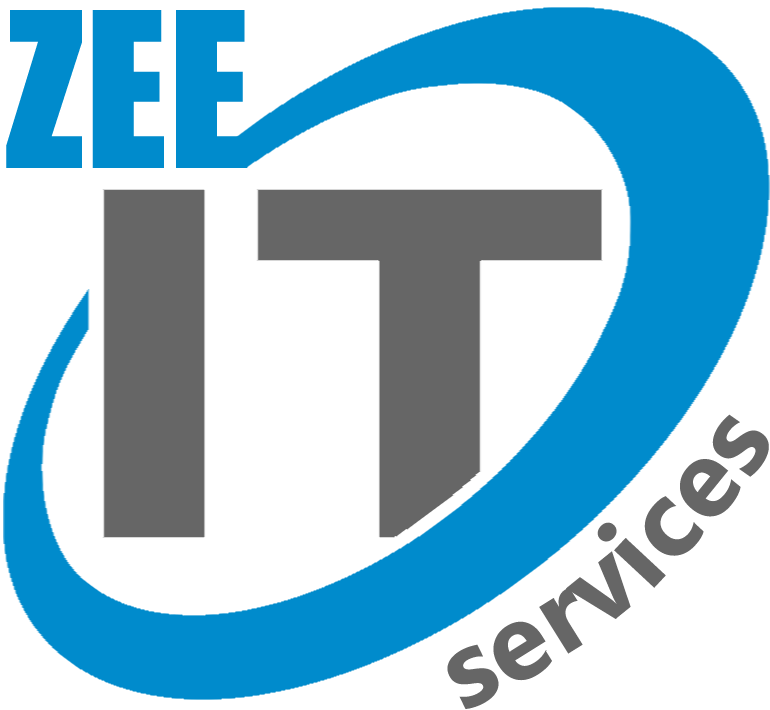
May 9, 2023 | Blogs
There are several factors to take into account when it comes to optimizing your website for search engines, and technical SEO is one of them. Technical SEO is the practice of enhancing your website’s technical features to raise its search engine exposure and positioning. Any effective SEO strategy must include technical SEO because it establishes the framework for your website’s entire optimization efforts. Moreover, This article will explain technical SEO, why it’s crucial, and what factors you should take into account for effective website optimization.
What is Technical SEO?
Technical SEO is an on-page optimization strategy that entails improving your website’s technical components to make it easier for search engines to read and index the content of your website. It guarantees that search engines can easily crawl and index the information on your website. It is the process of enhancing your website’s technical components to raise its search engine rating. Moreover, These technological factors include crawlability, security, mobile friendliness, and speed of the website.
Why is Technical SEO Important?
For your website to rank and appear in search results, technical SEO is essential. Search engines may find it difficult to crawl and index the content of your website if it is not technically optimized for SEO, which will result in lower search engine ranks.
Additionally, Here are a few justifications for why technical SEO is crucial:
Enhance search engine rankings:
Technical SEO helps search engines better understand and index your website’s content, leading to improved search engine rankings.
Better user experience:
Technical SEO improves your website’s user experience by ensuring that your website is fast, secure, and mobile-friendly.
Increased website traffic:
Improved search engine rankings and better user experience lead to increased website traffic.
Understanding the Technical SEO Basics
Understanding the technical side of SEO is crucial before diving into its details. For website access and indexing, search engines use crawlers. Bots called crawlers comb through websites to gather data on their technological specifications, organizational structure, and content. Following that, this data is employed to assess a website’s relevance to a certain search query, which eventually affects its placement on search engine results pages (SERPs).
What Search Engine Crawlers Look for
Search engine crawlers look for various technical elements when crawling a website. Furthermore, These elements include:
Website Speed
A website’s search engine ranking is greatly impacted by website speed. Websites that load quickly are given preference by search engines since they enhance user experience.
Code Efficiency
The navigation and content understanding of a website is both improved by efficient coding. The website’s code must be perfect, meaning that the developers must write clear, well-structured, and error-free code.
Mobile-Friendliness
Your website must be mobile-friendly because more people are using mobile devices to access the internet. Mobile-friendly websites are given preference by search engines since they enhance user experience.
Website Security
Website security is critical for website owners who want to protect their website and users’ data. Moreover, Search engines prioritize secure websites by ranking them higher on SERPs.
What are the Important Points You Must Consider for Better Technical SEO?
Moreover, Now we’ll discuss some essential technical SEO points that you should consider for better website optimization:
Site speed
The speed of your website is one of the most important technical SEO considerations. The critical element of site performance not only influences user experience but also search engine rankings. A slow website can harm the user experience and increase bounce rates. A page should load in under 2 seconds, according to Google. Therefore, it is crucial to optimize the speed of your website.
Additionally, The tips listed below can help you make your website load faster:
- The developers should optimize a website’s visuals and videos for faster loading times.
- Utilize a content delivery network (CDN) to speed up the loading of websites.
- Use as little CSS and JavaScript as feasible to quicken website loading.
Mobile-friendliness
In the modern world, a sizable portion of internet traffic is generated by mobile devices. Therefore, it is crucial to check if your website is mobile-friendly. A website is considered mobile-friendly if it is simple to use and browse on a mobile device. Google has made it plain that it gives mobile-friendly websites preference in its search results. So, if you want to raise your website’s search engine ranks, you must make it mobile-friendly.
Moreover, Here are some points to improve mobile-friendliness:
- Use a website design that responds to various screen widths.
- Make sure the material on your website is mobile-friendly.
- Adapt your text size and layout to mobile devices.
- Prevent pop-ups and interstitials from interfering with the experience of mobile users.
Website architecture
The structure and organization of your website are referred to as its architecture. The crawlability and indexability of your website can be considerably enhanced by a well-organized website architecture. It’s crucial to check that your website has a simple, clear layout with straightforward navigation. Not only will this enhance user experience, but it will also make it easier for search engines to crawl and index your website.
In addition, Here is some point to improve the website structure :
- Use a URL structure that is straightforward and brief and contains your target keywords.
- Put the information on your website into logical categories and subcategories.
- Use breadcrumb navigation to help users and search engines understand your website’s structure.
- Additionally, Use internal linking to assist search engines comprehend the hierarchy of material on your website.
Website Security
Website security is becoming increasingly important as cyber threats continue to rise. Google takes website security into account when determining rankings. Furthermore, Here are some pointers to increase the safety of your website:
- Use HTTPS to encrypt data transmission between your website and the user’s browser.
- Keep your website’s software up to date to prevent vulnerabilities.
- Protect your website from typical assaults by using a web application firewall (WAF).
- Moreover, Regularly back up your website’s data to prevent data loss.
URL structure
Technical SEO heavily depends on the URL structure of your website. It may be simpler for search engines to comprehend the content of a page with a well-structured URL. The user experience and ease of website navigation can both be enhanced by a clear URL structure. Moreover, Here are some tips to improve URL Structure:
- Keep URLs short and descriptive
- Use hyphens to separate words in URLs
- Remove unnecessary parameters from URLs
- Utilize canonical tags for prevention of duplicate content issues
- Furthermore, Ensure all URLs are accessible and indexable by search engines
Schema markup
A type of structured data called schema markup gives search engines more context and details about the material on your website. It can aid search engines in better comprehending the content of your website and increase the visibility of your website in search results. Additionally, Article, product, and local business schema are a few of the most often-used varieties of schema markup.
Moreover, Here are some tips to improve Schema markup:
- Choose the appropriate Schema types for your website.
- Add Schema markup to your website’s pages using microdata or JSON-LD
- Test your Schema markup using Google’s Schema Testing Tool
- Monitor your website’s rich snippets in search results
- Keep your Schema markup up-to-date as your website’s content changes
Content optimization
Although technical SEO is crucial, it’s equally vital to keep in mind that content is still king. It’s crucial to provide top-notch, pertinent, and interesting content that appeals to your target audience. This will enhance both the user experience and the search engine rankings of your website.
Furthermore, Here are some tips to improve content optimization:
- Make use of relevant keywords in your text by conducting keyword research.
- Write high-quality, unique content that provides value to users
- Optimize meta tags (title and description) with relevant keywords and a clear description of the page’s content
- Link relevant pages on your website together using internal linking.
As search engines continue to evolve, it’s essential to keep up with the latest trends and techniques for optimizing your website. ZEE IT Services covers everything from URL structure to Schema markup to technical optimization and content optimization, providing you with a comprehensive approach to improving your website’s performance. Our team of experienced professionals can help you unlock the secrets of technical SEO and implement best practices to optimize your website’s performance. So, Don’t leave your website’s success to chance – trust our technical SEO services to help you achieve your goals.

May 8, 2023 | Blogs
Conducting a search engine optimization (SEO) audit regularly is crucial if you have a website. A thorough review of your website’s current position, traffic, and other significant elements that affect its performance and visibility on search engines constitutes an SEO audit. Additionally, It gives you useful information on how your website is doing, what is doing well, and what is not. Moreover, This post will explain what an in-depth SEO audit is and how to conduct one for your website.
What is an SEO audit?
The performance of a website currently on search engines is thoroughly examined in an SEO audit. It involves looking into the technical and non-technical parts of the website to find any problems that might be preventing it from ranking well in search engines. The audit often entails examining a variety of website components, including content, structure, keywords, backlinks, and other characteristics that may also influence its search engine ranking.
Why is SEO audit important?
An SEO audit is essential for the following reasons:
Helps identify issues:
An SEO audit can help identify technical and non-technical issues that could be impacting a website’s ranking on search engines. Identifying and addressing these issues can significantly improve the website’s visibility and ranking on search engines.
Provides insights:
A website’s performance, including its current ranking, traffic, and other factors that affect its search engine exposure, might be usefully revealed by an SEO audit. Furthermore, These observations can aid in creating a strategy to enhance the functionality of the website and raise its presence on search engines.
Improves user experience:
An SEO audit can also help identify issues that could be impacting the website’s user experience. Additionally, Addressing these issues can improve the website’s user experience, leading to higher engagement and better ranking on search engines.
Benefits of performing SEO audit
Performing an SEO audit offers several benefits, such as:
- Identifying technical issues that affect website performance
- Improving the website’s search engine visibility and rankings
- enhancing the content of websites for both visitors and search engines
- Enhancing user experience and engagement
- Generating leads and increasing conversions
When to conduct an SEO audit?
It is recommended to conduct an SEO audit at least once a year or after any significant changes to your website, such as a redesign or a content update.
Preparing for an SEO Audit
Before starting an SEO audit, you need to define the scope, objectives, and goals of the audit. It involves the following steps:
Define the scope of the audit
Defining the scope of the audit involves identifying which aspects of your website you want to analyse, such as website architecture, content, on-page and off-page factors, technical issues, and local search.
Identify the goals and objectives of the audit
The audit’s goals and objectives should be in line with your company’s goals. For instance, your audit should concentrate on finding areas that can raise your website’s exposure and draw in more visitors if your goal is to increase website traffic.
Collecting data and resources for the audit
Data and resources including website analytics, search engine ranking reports, backlink analysis reports, and social media metrics must be gathered to conduct an SEO audit.
Creating an SEO audit checklist
An SEO audit checklist is a list of tasks and items that you need to evaluate during the audit. It also helps ensure that you cover all the essential areas and elements of your website. The following might be some of the elements on the checklist:
How to perform a website SEO audit
Here are some steps to follow when conducting a website SEO audit:
Technical SEO
The technique of optimizing a website’s technical components to raise its search engine visibility is known as technical SEO. Technical SEO audit also helps identify technical issues that may prevent search engines from crawling, indexing, and ranking your website’s pages. Moreover, Here are the key elements of a technical SEO audit:
Website structure and URL
Website structure and URL are crucial components of technical SEO. A well-structured website is easy to navigate for users and search engines, which improves website visibility. Additionally, Here’s how to check the website structure and URL:
- Check website architecture and internal linking to ensure it’s easy to navigate
- Evaluate website URL structure to ensure it’s optimized for search engines
- Check the website sitemap to ensure it’s correctly formatted and submitted to search engines.
Analyze website speed and performance
For both user experience and search engine optimization, website performance and speed are essential. High bounce rates and low conversion rates can be the results of a slow website. Furthermore, Here’s how to evaluate the performance and speed of a website:
- Evaluate website loading time using Google’s PageSpeed Insights or other website speed testing tools
- Check website server response time to ensure it’s fast
- Analyze website caching, compression, and optimization to improve website speed and performance
Perform mobile-friendliness test
Mobile-friendliness is crucial for website optimization because more than half of the world’s web traffic comes from mobile devices. A mobile-friendly website improves user experience and search engine visibility. Moreover, Here’s how to perform a mobile-friendliness test:
- Check website responsiveness using Google’s Mobile-Friendly Test or other website testing tools.
- Ensure website is responsive for all devices.
- Analyse website usability on mobile devices to improve user experience.
On-page SEO audit
On-page SEO audit is a process of evaluating your website’s content and HTML source code to identify issues that may hinder your website’s performance in search engines. It helps in improving website visibility, ensuring search engines can understand and rank your website’s pages correctly. In addition, Here are the primary elements of an on-page SEO audit:
Optimize website content
On-page SEO heavily depends on website content. High quality content helps in enhancing visibility on search engines. Additionally, Here’s how to make website content more effective:
- Conduct a content audit to identify thin and duplicate content
- Website content should be improved for target keywords and user intent.
- Use descriptive and keyword-rich meta tags, headings, and subheadings to improve website visibility.
Perform keyword research:
Find appropriate keywords to target for your website by conducting keyword research. Find low-competition, high-volume keywords that you can optimize your site for.
Analyze website architecture and user experience:
Ensure that the architecture of your website is sensible and user-friendly. To guarantee that visitors can quickly discover the information they require, analyze the user experience.
Off-page SEO Audit
Off-page SEO audit is focused on analyzing the factors that affect a website’s search engine ranking that is outside of the website. Moreover, Here are the key elements of an off-page SEO audit:
Analyze the website’s backlink profile:
Analyze the number of backlinks your website has. Find any backlinks that are spammy or low quality that may be harming your search engine rankings.
Perform competitor analysis:
Analyze the backlink profiles and search engine rankings of your competitors. Identify strategies that they are using to improve their search engine rankings and apply them to your website.
Measure website authority and reputation:
Check the domain authority of your website to see how it stacks up against your competitors. Moreover, Monitor your online reputation to identify any negative reviews or feedback that may be hurting your search engine rankings.
Local SEO Audit
Local SEO audit is focused on optimizing a website for local search. Local SEO is crucial for firms that depend on local clients. It helps businesses appear in local search results and attract customers in their area. Additionally, Here are the key elements of local SEO audit:
Optimize the website for local search:
Optimize your website for local search by including location-based keywords in your content, meta descriptions, and URLs. Moreover, Use schema markup to tell search engines your business’s name, address, and phone number.
Analyze local citations and directories:
Check your business’s listings in local directories and citations. Also, Make sure all directories have accurate and consistent information about your company.
How to measure local SEO success:
Track the traffic, conversions, and local search rankings for your website. Moreover, Utilize this knowledge to modify your local SEO approach and raise your search engine rankings.
Reporting and Action Plan
It’s crucial to produce an SEO audit report outlining the problems and possibilities found during the audit after the SEO audit is finished. The main components of reporting and an action plan are as follows:
Create an SEO audit report:
Summarize the findings of the audit and prioritize the issues and opportunities based on their impact on search engine rankings and traffic.
Prioritize SEO issues and opportunities:
Moreover, Focus on high-impact issues that can improve your search engine rankings and traffic the most.
Develop an SEO action plan:
Make a thorough action plan that specifies the procedures to be followed to address the problems and opportunities revealed by the audit.
Measure SEO performance:
To keep track of the traffic, conversions, and search engine placements for your website, use website analytics tools. Furthermore, Follow your development over time to discover how your SEO efforts are having an effect.
If you’re having trouble raising your website’s position and visibility on search engines, ZEE IT Services offers Website SEO Audit services that may assist you to determine the SEO’s advantages and disadvantages. They’ll perform a full analysis of the content, architecture, and user experience of your website using an SEO audit to give you a personalized action plan. Moreover, Your website will be optimized and given a ranking boost by their team of experts in collaboration with you. Schedule your website SEO audit by contacting ZEE IT Services right away!

May 1, 2023 | Blogs
In the digital world, having a website is not enough to succeed in your online business. It is crucial to have an online presence and be visible to your intended audience. This is where SEO comes into play. Search Engine Optimization (SEO) is the process of optimizing your website to rank higher in search engine results pages (SERPs). SEO is a crucial part of any digital marketing strategy, and it can help you improve your website rankings in 2023-24. You must keep up with the most recent SEO trends and strategies if you want to stay one step ahead of the competition. This post will go through ten strategies for raising your website’s ranks in 2023–2024.
Create High-quality Content
One of the most important factors for improving your website rankings is to create high-quality content. Content is the essence of your website, and search engines love fresh, unique, and relevant content. By creating high-quality content, you can increase user engagement, improve your website’s authority, and drive more traffic to your website. For instance, if you run a fitness blog, you can write high-quality articles with workout plans, wholesome cuisine ideas, and health advice. Along with keeping your audience interested, this content will assist you to improve your search engine ranking.
Create Relevant Backlinks
Backlinks are an essential part of SEO. They are like votes of confidence for your website. The more high-quality backlinks you have, the higher your website will rank in search engine results in pages. But, it’s not just about quantity; it’s about quality. You need to create relevant backlinks that are related to your website’s niche. For example, if you run a website about travel, you can create backlinks from other travel-related websites. This will signal to search engines that your website is authoritative in the travel niche, and they will rank you higher in search engine results pages.
Search Intent and Content Relevancy
The purpose of someone’s Google search is determined by their search intent. To produce pertinent information that satisfies user needs, it is crucial to comprehend search intent. You can raise the ranks of your website by producing material that is pertinent to the user’s search intent. For instance, when someone types in “best pizza in New York,” they are looking for suggestions for the city’s top pizza joints. You can satisfy a user’s search intent by producing content that lists the top pizza joints in New York, which will raise your website’s search engine ranks.
Improve Website Loading Speed
Website loading speed is one of the most critical factors for improving your website rankings. Users expect websites to load quickly, and if your website takes too long to load, they will leave and go to your competitor’s website. You can use tools like Google PageSpeed Insights to check your website’s loading speed and get suggestions for improvement. To improve your website’s loading speed, you can take the following steps:
Use a fast web host:
Your website’s loading time may be considerably impacted by the web host you select. Pick a quick and dependable hosting service.
Compress images:
Large images can slow down your website’s loading speed. Compressing images can reduce the file size and improve loading times. Enable GZIP compression to reduce the size of your website’s files and allow them to load faster
Minimize HTTP requests:
The more HTTP requests your website makes, the longer it will take to load. Minimize the number of requests by removing unnecessary scripts and plugins.
Use browser caching:
Browser caching allows web pages to be stored in a user’s browser so that they load faster the next time they visit your site.
Mobile Friendliness is Important
Internet browsing on mobile devices is becoming more and more popular, and this trend is not likely to stop anytime soon. If you want to raise your website’s ranks, it must be mobile-friendly. You may enhance website’s user experience, raise the authority and rank better in search engine results pages by developing a mobile-friendly website. To make your website mobile-friendly, follow these suggestions:
Use a responsive design:
A responsive design ensures that your website adjusts to the screen size of the device being used to access it.
Optimize images for mobile:
Large images can slow down your website’s loading speed on mobile devices. Optimize your images to ensure they load quickly on mobile devices.
Use legible fonts:
On small screens, difficult-to-read fonts can have a detrimental effect on the user experience. Make use of mobile-friendly typefaces that are readable.
Do Keyword Research To Target
The study of keywords is crucial to SEO. It entails figuring out the search terms that your intended audience uses and implementing them into your content. Following are some pointers for keyword research:
Use keyword research tools:
You may find the terms that members of your target audience are searching for by using tools for keyword research like Google Keyword Planner.
Analyze competitor keywords:
You can gain knowledge of the keywords that are crucial to your industry by examining the keywords utilized by competitors.
Focus on long-tail keywords:
Long-tail keywords are longer, more detailed search terms that people are more inclined to enter into their browsers. They can assist you in bringing more relevant visitors to your website.
Improve Website Structure
Both user experience and SEO benefit from a well-structured website. Both consumers and search engines can more easily understand your website’s content with a solid website structure. Here are some pointers for enhancing the structure of your website:
Use descriptive URLs:
Descriptive URLs make it easier for users and search engines to understand the content on a page.
Use header tags:
You may organize your information and make it easier to read by using header tags like(H1, H2, and H3).
Use a sitemap:
A sitemap is a file that lists all the pages on your website. It helps search engines understand the structure of your site and find all your pages.
Internal Linking within the Pages
Internal linking is an important aspect of SEO that involves linking to other pages on your website. Internal links can help improve your website’s user experience and search engine rankings. Here are some tips for internal linking:
Link to relevant pages:
The content of internal links should be appropriate for the page from which they are coming.
Use descriptive anchor text:
Descriptive anchor text can help search engines understand what the linked page is about.
Use a reasonable number of internal links:
Your article may appear spam if it has too many internal links. Use a sensible amount of internal links
Improve Meta Titles and Descriptions
Meta titles and descriptions are important because they appear in search engine results and influence whether or not someone clicks through to your website. Therefore, you should spend time crafting compelling and descriptive meta titles and descriptions for each page on your website. The information on the page, including your intended keyword(s), should be accurately and briefly described in your meta title. To increase clicks, the meta description should include a call-to-action in addition to a concise synopsis of the page’s content.
Schema Implementation
A sort of microdata called schema markup helps search engines in comprehending the content of a web page. Schema markup can be used to present details on goods, services, occasions, businesses, and more. You may make it simpler for search engines to comprehend the content of your pages and show rich snippets in search results by adopting schema markup on your website. Organization, product, review, event, and recipe are just a few examples of the various sorts of schema markup. Select and appropriately implement the schema markup that is most applicable to your website. To determine whether your schema markup is accurate and to see a preview of how it will look in search results, use Google’s Structured Data Testing Tool.
Why to choose Zee IT Services?
In today’s hyper-competitive online landscape, having a strong search engine ranking is essential for businesses of all sizes. ZEE IT Services know that staying ahead of the curve can be challenging, which is why we’re here to provide you with the 10 most effective ways to improve your rankings in 2023-24. From conducting thorough keyword research to implementing cutting-edge SEO techniques, their team of experts has the skills and experience necessary to help you climb the rankings and increase your online visibility. So if you’re ready to take your business to new heights, let ZEE IT Services be your guide and help you achieve the success you deserve in the digital world.

Apr 17, 2023 | Blogs
Search Engine Optimization (SEO) is an essential aspect of digital marketing, and its significance cannot be overstated. While SEO strategies are vital for small businesses and individuals, enterprise SEO is essential for large companies that want to remain competitive. Enterprise SEO refers to SEO strategies and tactics that are designed for large companies with many web pages, locations, and business lines. In this article, we will discuss what enterprise SEO is, why it is important, and the key points to consider for better results and success.
What is Enterprise SEO?
Enterprise SEO refers to a comprehensive approach to search engine optimization for large companies with many web pages, multiple locations, and various business lines. Enterprise SEO aims to increase a company’s online visibility and traffic by implementing effective strategies and tactics.
Unlike traditional SEO, enterprise SEO requires a more complex approach, as large companies often have several websites, business lines, and locations. This makes it more challenging to manage and optimize effectively. Therefore, enterprise SEO involves implementing strategies that can handle the complexity of large organizations.
Why is Enterprise SEO Important?
Large businesses that wish to keep a competitive advantage in their sector must invest in enterprise SEO. Companies who invest in enterprise SEO can considerably benefit from increased website traffic, enhanced online visibility, and higher conversion rates as the value of having a strong online presence grow.
Additionally, enterprise SEO is essential for companies with a large number of websites, locations, and product lines. It might be difficult to manage and optimize each website for large organizations because they frequently have multiple ones. Enterprise SEO aids businesses in streamlining their SEO tactics and efficiently optimizing their websites.
Who Can Benefit from Enterprise SEO?
Any large, complex organization with a significant online presence can benefit from Enterprise SEO. This includes companies in industries such as retail, finance, healthcare, and technology, among others.
Effective Strategies for Enterprise SEO Success
To achieve success with enterprise SEO, companies must implement effective strategies and tactics. Here are some key points to consider for better results and success:
Conduct a Thorough SEO Website Audit
A comprehensive analysis of a website’s advantages and disadvantages is known as an SEO website audit. It provides information on areas that need to be improved as well as difficulties that may impede SEO efforts. An in-depth site audit ought to look at the backlink profile, technical SEO, on-page optimization, and content quality.
Develop a Comprehensive Keyword Strategy
The importance of keyword research for enterprise SEO cannot be overstated. Large corporations frequently have a wide range of goods, services, and locations. Therefore, creating a thorough keyword strategy that incorporates all pertinent keywords and search phrases is crucial. Keyword research will be done through some of the best keyword research tools that will help in finding those keywords that will be beneficial for your business.
Create High-Quality Content
For SEO to succeed, high-quality content is essential. Increased website traffic, internet visibility, and user interaction are all benefits. A corporation can also become recognized as an authority in its field with the use of high-quality content. As a result, businesses must spend money producing interesting, relevant, and educational material for their websites.
Optimize for Mobile Devices
Websites must be mobile-friendly due to the growing use of mobile devices. Making sure a website is responsive, loads quickly, and is simple to use on mobile devices are all parts of mobile optimization.
Implement Schema Markup
Schema markup is a code that helps search engines understand the content of a website better. It can enhance the appearance of search results by providing additional information to users. Implementing schema markup can also help increase click-through rates and improve SEO rankings.
Optimize for Local Search
Businesses with many locations must prioritize local search optimization. Websites must be optimized for local search terms like “near me” searches. Increased local visibility, more foot traffic, and improved overall business success can all result from this.
Leverage Social Media Platforms
Online interaction can be improved, website traffic can be increased, and brand exposure can be raised via social media platforms. Therefore, businesses need to use social media platforms to advertise their content, interact with their audience, and improve their online presence.
Focus on Link Building
Link building is a crucial aspect of SEO, and it is even more critical for enterprise SEO. Large companies often have several websites, making it more challenging to build links effectively. Therefore, companies must focus on building high-quality links to improve their website authority and search engine rankings.
Utilize Google Analytics and Other Tools
For SEO to be successful, data from websites must be analyzed. The performance of a company’s website must therefore be tracked, SEO efforts must be tracked, and areas that need improvement must be identified using tools like Google Analytics.
Stay up-to-date with SEO Trends
Algorithms and trends in SEO are always changing. To remain competitive in their sector, businesses must keep up with the most recent SEO developments and best practices.
How to Improve Local SEO Strategy for Enterprise Business?
Local SEO is essential for businesses that have a physical location. To improve local search visibility, it is essential to follow some of these steps
Optimize Google My Business Listing
Claim and optimize your Google My Business listing with accurate and up-to-date information.
Get Listed in Local Directories
Get listed in local directories such as Yelp, Yellow Pages, and Angie’s List to improve local search visibility.
Get Reviews
Encourage customers to leave reviews on your Google My Business listing and other relevant review platforms to improve their online reputation and local search visibility.
How Is Enterprise SEO Different Than Normal SEO?
Enterprise SEO differs from “normal” SEO in several key ways. Let us take a look at Key Differences Between Enterprise SEO and Normal SEO
Scalability
Scalability is among the key distinctions between enterprise SEO and standard SEO. Enterprise websites frequently include many more pages and parts, making them more complicated to scale up. With the use of tools and technologies to automate and streamline the optimization process, SEO must now be approached more strategically and systematically.
Technical Complexity
Enterprise websites are often built on more complex technology stacks, which can create technical challenges for SEO. This includes issues such as duplicate content, site speed, and crawl errors, which can impact search engine visibility. Enterprise SEO requires a deep understanding of technical SEO best practices and the ability to work closely with IT and web development teams to resolve these issues.
Organizational Hierarchy
Enterprise organizations typically have a more complex hierarchy and decision-making structure, which can create communication and collaboration challenges for SEO. This requires a more strategic and structured approach to SEO, including the development of clear objectives, stakeholder engagement, and effective communication across departments.
Budget Allocation
Enterprise SEO often requires a higher budget allocation than normal SEO, due to the increased complexity and scope of the optimization efforts. This includes investments in tools and technologies, as well as resources such as content creators, SEO specialists, and web developers.
Performance Metrics
Enterprise SEO requires a more comprehensive and nuanced approach to performance metrics, including the use of both quantitative and qualitative data to measure the success of SEO efforts. This includes tracking metrics such as keyword rankings, organic traffic, engagement metrics, and revenue generated from organic searches. Enterprise SEO also requires a deeper understanding of the customer journey and how SEO fits into the overall marketing funnel.
Are you attempting to grow your company? The greatest enterprise SEO services are then offered to you by ZEE IT Services! They may assist you in increasing traffic to your website and, ultimately, money by enhancing its search engine rating. They provide a thorough method of SEO that is advantageous to every type of organization. Why then wait? Get in touch with ZEE IT Services right away to see how their enterprise SEO services may help you grow your company.

Apr 10, 2023 | Blogs
You have come to the right place if you intend to establish a new website or currently have one but are unsure how to attract and generate traffic for it. You must create a strong SEO strategy if you want your website to rank higher and draw in more people. You can increase the visibility of your website, draw more visitors, and ultimately expand your business with the aid of a well-planned SEO campaign.
The best methods for developing an SEO strategy for a new website will be covered in this article. We’ll go through everything, from local SEO to link building and keyword research, and offer advice on how to collaborate with a professional SEO company to get the greatest outcomes.
Choose a Right Domain Name and Homepage URL
Your website’s domain name and homepage URL are crucial elements in search engine optimization. Your website’s domain name and URL should be distinctive, simple to type, and appropriate for the information on the page. Ideally, one or more of your target keywords should be included in your domain name. For instance, your domain name might be something like DigitalMarketingPros.com if you are creating a website for a digital marketing agency.
Optimize Page URLs
As your Homepage URL is important for the rest of the page, URLs are also considered to be an important part of the SEO of your website. To optimize your page URLs, you should aim to create URLs that are short, descriptive, and keyword-rich. Preferably your URLs should be no longer than 3-5 words and should accurately describe the content of the page. Use hyphens to separate words in your URL rather than underscores or spaces, as this will help search engines better understand the structure of your URL.
In addition to optimizing your URLs for search engines, it is also important to ensure that they are user-friendly. This means creating URLs that are easy to read and understand and that accurately reflect the content of your page. The use of the right keywords is also important in URLs. However, it is important to use keywords strategically and carefully as overuse of keywords can result in penalties from search engines.
Set Up Your New Site in Google’s Search Console
Make sure you set up your new website in Google’s Search Console. Monitoring and maintaining your search engine results are both easy with this free tool. You can track the performance of your website in Search Console and identify any issues that might be negatively affecting your search engine rankings
Create Unique Title Tags and Meta Descriptions
Title tags are the main headlines that appear in search engine results pages (SERPs) when someone searches for a particular keyword. Then Meta descriptions provide a summary of what the page is about and are usually displayed beneath the title tag in SERPs. To create unique and effective title tags and meta descriptions, always use relevant keywords and keep your meta description and tags concise. For your title tag, you should not exceed 60-70 characters, and for your meta description, you should not exceed 150-160 characters. Your title tag and meta description should accurately describe the content on your page to help users decide whether or not to click through to your website.
Defining Your Target Audience and Keyword Research
You must identify your target market after creating a website. What are your potential consumers looking for and who are they? You must do keyword research once you have determined your target market. Finding the terms and phrases that your potential clients use to search for your goods or services is known as keyword research. You may find the ideal keywords to target by using one of the various keyword research tools available, like Google Keyword Planner, Ahrefs, and SEMrush.
Optimize Your On-Page SEO
Once you’ve identified your target keywords, it’s time to optimize your website’s on-page SEO. On-page optimization refers to optimizing your website’s content and structure. This involves making sure that your website’s pages are properly optimized with the right keywords in the right places, such as the page title, meta description, header tags, and throughout the page content. This helps search engines understand what your website is about and can improve your chances of ranking for your target keywords.
Develop a Content Strategy
As content is king in SEO, any SEO strategy for a new website must include building a content strategy. Your content ought to be of a high standard, pertinent, and interesting to your intended audience. This can include articles for your blog, infographics, videos, and other content that can draw website visitors and keep them there.
Off-Page Optimization and Link Building
Off-page optimization refers to optimizing your website’s presence outside of your website. It includes link building, social media marketing, and online reputation management. Link building is the practice of acquiring links from other websites to your website. It helps to establish your website’s authority and credibility. The quality and quantity of links pointing to your website are one of the most important factors in SEO. You can also reach out to other websites in your industry and ask for backlinks, as long as they are relevant and of high quality.
Optimize for Local SEO
If your business serves a specific geographic area, optimizing for local SEO is crucial. Local SEO involves optimizing your website to rank higher in local search results. It includes optimizing your website for local keywords, creating local content, and listing your business on local directories. Google My Business is a great tool for managing your local business listing. This can help you appear in local search results and attract local customers to your business.
Hire a Professional SEO Company
For a new website, creating and implementing an efficient SEO strategy can be difficult and time-consuming. Choose a reputable SEO company that can help you save time and get better results if you don’t have the time or expertise to manage SEO on your own. Choose a business that has a track record of success, transparent pricing, and a thorough comprehension of your company’s objectives.
If you’re looking for the best SEO services and to raise the rating of your website, you can’t go wrong with ZEE IT Services. ZEE IT Services is a reputable company that can assist you in creating and implementing a comprehensive SEO plan that fits the specific requirements and objectives of your company.
Page 18 of 19« First«...10...1516171819»











